Java program to accept a string and count total numeric values.
public class Test2{
public static void main(String[] args){
String str = "I was 2 years old in 2002";
int count = 0, i;
for(i = 0; i < str.length(); i++){
if(str.charAt(i) >= 48 && str.charAt(i) <= 57){
count++;
// while(str.charAt(i) >= 48 && str.charAt(i) <= 57)
// i++;
}
}
System.out.println("Output: " +count);
}
}
Output = 5 After uncommenting the two lines written inside while loop -
Exception in thread "main" java.lang.StringIndexOutOfBoundsException: String index out of range: 25
at java.base/java.lang.StringLatin1.charAt(StringLatin1.java:48)
at java.base/java.lang.String.charAt(String.java:712)
at Test2.main(Test2.java:9)
The output should be 2, because there are two numeric values - 2 and 2002 I have commented on the two lines in the above code, after uncommenting the code, the same logic works perfectly in C++.
